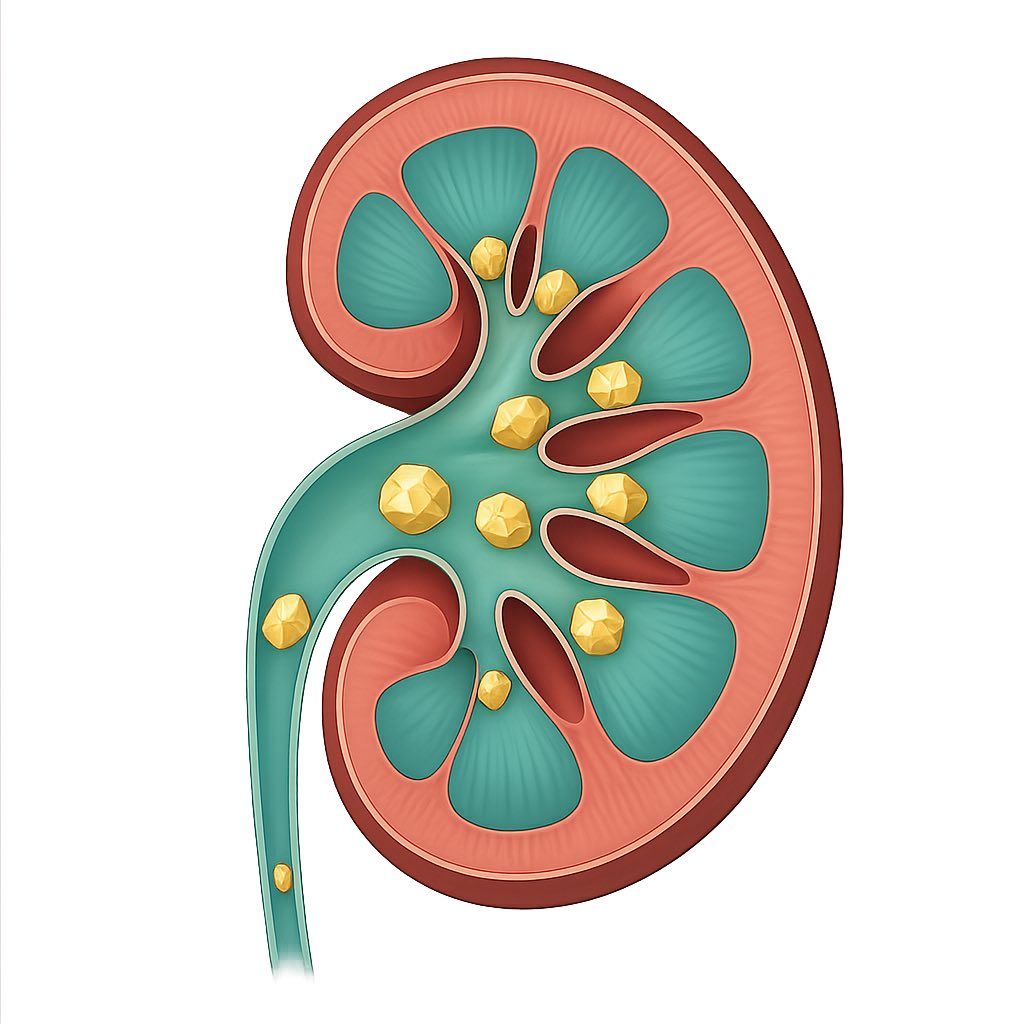What Causes It?
Dehydration - Not drinking enough water leads to concentrated urine, which increases the risk of stone formation.
Diet - Diets high in sodium, animal protein, and oxalate-rich foods (such as spinach, nuts, and chocolate) can increase stone risk in susceptible individuals.
Family history - Having family members with kidney stones increases your risk.
Certain medical conditions - Conditions such as urinary tract infections, inflammatory bowel disease, gout, hyperparathyroidism, and certain metabolic disorders increase kidney stone risk.
Medications - Some medications including certain diuretics, calcium-based antacids, and some antivirals and protease inhibitors can increase stone risk.
Obesity - Being overweight or obese increases your risk of developing kidney stones.
Geographic and climate factors - Living in hot, dry environments where dehydration is more likely, or in regions with high mineral content in drinking water.
Signs & Symptoms
Severe pain in the side and back, below the ribs (renal colic)
Pain that radiates to the lower abdomen and groin
Pain that comes in waves and fluctuates in intensity
Pink, red, or brown urine (due to blood in urine)
Cloudy or foul-smelling urine
Nausea and vomiting
Persistent urge to urinate
Urinating more often than usual
Burning sensation during urination
Fever and chills (if infection is present)
Passing small amounts of urine
